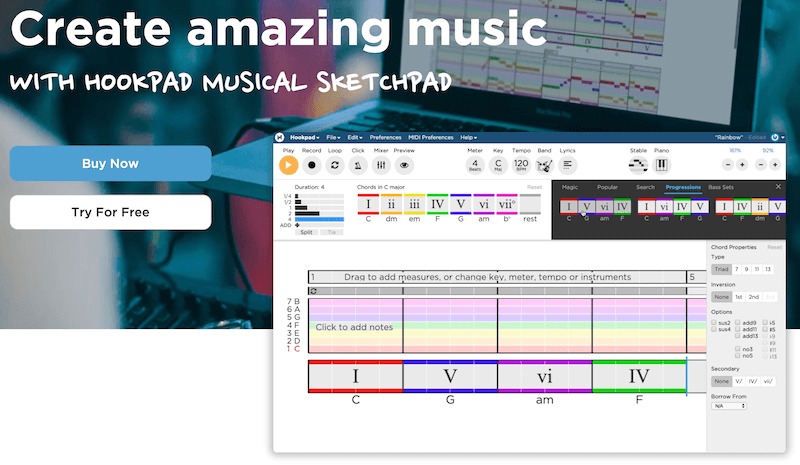Want to become a better guitar player? Learning guitar scales is essential. These 10 secrets will show you how to master scales quickly and easily, and use them to improve your guitar skills.
What Are Guitar Scales?
Scales are sequences of notes that follow a certain pattern. For example, the G major scale consists of the notes G, A, B, C, D, E, and F#.
You can play this scale on the guitar by starting from any G note and following the same pattern of intervals (the distance between notes).
There are many kinds of scales, such as major, minor, pentatonic, blues, and more. Each scale has its own sound and mood. You can use different scales to play different styles of music and create different emotions.
But why should you learn scales? What are the benefits of learning scales? How can you learn scales easily and effectively?
Read on to discover the answers.
Secret 1: Scales Can Improve Your Technique
One of the first benefits of learning scales is that they can improve your technique. Technique is the physical skill of playing the guitar.
By practicing scales, you can improve your finger strength, independence, control, and dexterity. You will be able to play faster, smoother, and cleaner.
You can also avoid common problems like sloppy chord changes or unwanted string noise.
Secret 2: Scales Can Help You Understand Music Theory
Another benefit of learning scales is that they can help you understand music theory.
Music theory is the knowledge of how music works and how chords are built from scales.
By learning scales, you will learn about keys, modes, intervals, and more. This will help you understand the songs you play and write your own music.
Secret 3: Scales Can Help You Develop Your Ear Training
A third benefit of learning scales is that they can help you develop your ear training skills. Ear training is the ability to recognise and reproduce sounds by ear.
By practicing scales, you will learn how different notes sound and how they relate to each other. This will help you work out songs by ear faster and easier.
How can I get better at working out songs by ear?
If you want to know how to improve your ear training skills, there are a number of software tools that can help you train your ear to work out songs fast.
Here are our top recommendations:
➡️ This book reveals the secrets of music theory that’ll help you recognise and play notes, chords, and rhythms with ease: Easy Peasy Guitar Music Theory: for Beginners.
➡️ You can also try Chord Crush by Hooktheory, a fun and interactive ear-training app that teaches you to recognise chords by solving puzzles based on real songs.
➡️ Another useful tool is Hookpad by Hooktheory, a songwriting software that helps you create melodies and chord progressions with built-in music theory and AI.
➡️ EarMaster is an ear training app that helps you learn to hear and play notes, chords, scales, and rhythms. It has many fun exercises and games to improve your music skills.
Secret 4: Scales Can Help You Improve Your Tone
A fourth benefit of learning scales is that they can help you improve your tone and sound quality.
By practicing scales, you will learn how to control your dynamics (the volume of your notes), articulation (the way you play your notes), and expression (the emotion you convey with your notes).
You will also learn how to use different techniques like vibrato, bends, slides, hammer-ons, pull-offs, and more.
Secret 5: Scales Can Help You Learn How to Improvise
One of the most fun and rewarding aspects of playing guitar is improvising. Improvising is creating music on the spot without following a script or a plan.
To improvise well, you need to know your scales. Scales give you the vocabulary and the grammar to create musical sentences and phrases.
Secret 6: Scales Can Help You Develop Your Rhythm
Scales can also help you develop your rhythm skills. Rhythm is the timing and groove of your music.
By practicing scales with a metronome or a backing track, you will learn how to play in time and sync with other musicians.
You will also learn how to use different rhythms and accents to create interest and variety.
Heads up! The best scale beginner guitar players should learn to play first is hands-down the minor pentatonic scale. Learn the 5 minor pentatonic scale positions (+ FREE practice jam tracks here)
Secret 7: Scales Can Help You Apply Music Theory Ideas
Scales can help you apply essential music theory ideas to your guitar playing.
For example, by learning scales, you will be able to identify chord tones (the notes that make up a chord) and use them to create melodies and solos that match the chords.
You will also be able to use modes (variations of scales) to create different sounds and moods.
Secret 8: Scales Can Help You Navigate the Fretboard
Scales can help you learn and navigate the fretboard better. The fretboard is the map of your guitar where all the notes are located.
By learning scales, you will learn where all the notes are and how they connect across the fretboard. This will help you play more fluently and confidently.
Secret 9: Scales Can Help You Choose the Right Notes
Scales can help you choose the right notes to play in any situation. By knowing your scales, you will know which notes sound good over which chords and which notes to avoid.
You will also be able to use different scales to create contrast and tension in your music.
Secret 10: Scales Can Help You Play Filler Melodies
Scales can help you play filler melodies between chord changes. Filler melodies are short and simple melodies that connect one chord to another.
They add interest and smoothness to your playing. By knowing your scales, you will be able to play filler melodies that fit the key and the chord progression.
Summing it Up
Learning guitar scales is like learning the alphabet of music. Once you know the basics, you can start to spell out all sorts of cool stuff.
To recap, learning scales can help you:
- Improve your technique
- Understand music theory
- Develop your ear training
- Improve your tone
- Learn how to improvise
- Develop your rhythm
- Apply music theory concepts
- Navigate the fretboard
- Choose the right notes
- Play filler melodies
So what are you waiting for? Start learning your scales today!










